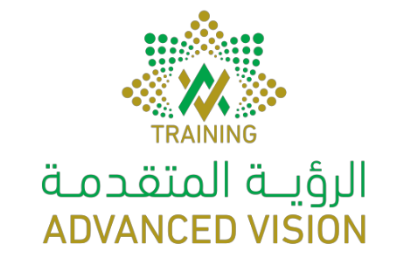Certified Artificial Intelligence AI Practitioner CAIP
Artificial intelligence (AI) and machine learning (ML) have become an essential part of the toolset for many organizations. When used effectively, these tools provide actionable insights that drive critical decisions and enable organizations to create exciting, new, and innovative products and services.
This course shows you how to apply various approaches and algorithms to solve business problems through AI and ML, follow a systematic workflow to develop sound solutions, use open source, off-the-shelf tools to build, test, and deploy those solutions, and ensure that they protect the privacy of users.
Course Info
In this course, you will develop AI solutions for business problems and learn how to apply them in real-world scenarios.
You will:
- Solve a given business problem using AI and ML.
- Prepare data for use in machine learning.
- Train, evaluate, and tune a machine learning model.
- Build linear regression models.
- Build forecasting models.
- Build classification models using logistic regression and k-nearest neighbor.
- Build clustering models.
- Build classification and regression models using decision trees and random forests. Build classification and regression models using support vector machines (SVMs).
- Build artificial neural networks for deep learning.
- Put machine learning models into operation using automated processes.
- They maintained machine learning pipelines and models while they were in production.
Lesson 1: Solving Business Problems Using AI and ML
- Topic A: Identify AI and ML Solutions for Business Problems
- Topic B: Formulate a Machine Learning Problem
- Topic C: Select Approaches to Machine Learning
Lesson 2: Preparing Data
- Topic A: Collect Data
- Topic B: Transform Data
- Topic C: Engineer Features
- Topic D: Work with Unstructured Data
Lesson 3: Training, Evaluating, and Tuning a Machine Learning Model
- Topic A: Train a Machine Learning Model
- Topic B: Evaluate and Tune a Machine Learning Model
Lesson 4: Building Linear Regression Models
- Topic A: Build Regression Models Using Linear Algebra
- Topic B: Build Regularized Linear Regression Models
- Topic C: Build Iterative Linear Regression Models
Lesson 5: Building Forecasting Models
- Topic A: Build Univariate Time Series Models
- Topic B: Build Multivariate Time Series Models
Lesson 6: Building Classification Models Using Logistic Regression and k-Nearest Neighbor
- Topic A: Train Binary Classification Models Using Logistic Regression
- Topic B: Train Binary Classification Models Using k-Nearest Neighbor
- Topic C: Train Multi-Class Classification Models
- Topic D: Evaluate Classification Models
- Topic E: Tune Classification Models
Lesson 7: Building Clustering Models
- Topic A: Build k-Means Clustering Models
- Topic B: Build Hierarchical Clustering Models
Lesson 8: Building Decision Trees and Random Forests
- Topic A: Build Decision Tree Models
- Topic B: Build Random Forest Models
Lesson 9: Building Support-Vector Machines
- Topic A: Build SVM Models for Classification
- Topic B: Build SVM Models for Regression
Lesson 10: Building Artificial Neural Networks
- Topic A: Build Multi-Layer Perceptron’s (MLP)
- Topic B: Build Convolutional Neural Networks (CNN)
- Topic C: Build Recurrent Neural Networks (RNN)
Lesson 11: Operationalizing Machine Learning Models
- Topic A: Deploy Machine Learning Models
- Topic B: Automate the Machine Learning Process with MLOps
- Topic C: Integrate Models into Machine Learning Systems
Lesson 12: Maintaining Machine Learning Operations
- Topic A: Secure Machine Learning Pipelines
- Topic B: Maintain Models in Production
- Appendix A: Mapping Course Content to CertNexus® Certified Artificial Intelligence (AI) Practitioner (Exam AIP-210)
- Appendix B: Datasets Used in This Course
- AI is becoming increasingly important for businesses to remain competitive and efficient in today's rapidly evolving technological landscape. This CAIP training covers the entire machine learning workflow, from collecting and refining datasets to building advanced models like Artificial Neural Networks.
- Furthermore, the course emphasizes the importance of promoting data privacy and ethical practices, ensuring that individuals have the necessary skills to implement data privacy and ethics policies in their organizations.
Completing this Certified AI Practitioner training course will prepare students to become AI practitioners and make significant contributions to the success of their organizations.
The skills covered in this course converge on four areas
- software development,
- IT operations,
- applied math and statistics
- business analysis.
- Target students for this course should be looking to build upon their knowledge of the data science process so that they can apply AI systems, particularly machine learning models, to business problems.
- This course is also designed to assist students in preparing for the CertNexus® Certified Artificial Intelligence (AI) Practitioner (Exam AIP-210) certification.
- Bachelor’s Degree
And/or
- 2 – 5 years of relevant work experience
Our Certified Artificial Intelligence (AI) Practitioner training provides individuals with the skills and knowledge required to develop and implement AI and machine learning (ML) solutions, making them highly valuable to businesses across industries.
This certification demonstrates proficiency in the most recent AI and ML techniques, and it can lead to exciting and well-paying career opportunities.
Here are some of the roles that benefit from our Certified Artificial Intelligence (AI) Practitioner training (as observed in popular job portals):
- AI/ML Engineer — they create and implement AI and ML solutions to improve organizational efficiency and drive innovation
- AI/ML Researcher — they conduct cutting-edge AI and ML research and develop new algorithms to solve business problems
- Business Analysts — they analyze data to provide insights into business performance and make recommendations to improve operations
- AI/ML Consultant — they advise organizations on the best AI and ML solutions to implement based on their business needs and goals
- AI/ML Product Manager — they oversee the development and implementation of AI and ML products to ensure they meet customer needs and expectations
This exam will certify that the candidate has the knowledge and skill set of AI concepts, technologies, and tools that will enable them to become capable AI practitioners in a wide variety of AI-related job functions.
- EXAM CODES: AIP-210
- PASSING SCORE: 60% or 59% depending on exam form
- NUMBER OF ITEMS: 80
- ITEM FORMATS: Multiple Choice/Multiple Response
- EXAM DURATION: 120 minutes (including 5 minutes for Candidate Agreement and 5 minutes for Pearson VUE tutorial)










